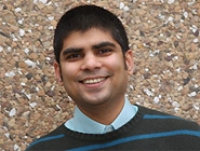

The objective of this Major Research Instrumentation (MRI) award is to acquire a versatile, robust, high energy, and high resolution X-ray microtomography (micro-CT) system that facilitates nondestructive mapping of the internal structure of a variety of materials enhancing multidisciplinary research and education at the University of Vermont (UVM). Since the introduction of computer-based X-ray tomographic imaging in the medical services field about 40 years ago, X-ray computed tomography is now applied to the nondestructive study of various natural, historic and engineered materials in the fields of engineering, geology, materials science, biology, and geo-energy, among others. This state-of-the-art technology provides non-destructive, high resolution, 3D imaging of materials that enables researchers to tackle many contemporary, previously intractable, fundamental and applied research questions related to infrastructure security, safety, health, and energy, with direct benefits to the society. The instrument will support research and educational activities of eighteen investigators from diverse fields of civil, environmental, mechanical, electrical and bio engineering, plant and soil science, geology, historic preservation, medicine and materials science. With this initial set of users and research applications for the instrument, it is believed that the impact of the acquisition of this micro-CT will be substantial for providing powerful new capabilities for researchers and their students and will thus lead to new on- and off-campus research and training collaborations.
The micro-CT allows researchers to examine the effects of loading, temperature fluctuations, fluid injections and how the fluids are absorbed by different materials. It will enable the UVM researchers to perform transformative basic and applied research and education related to: transport, mechanical and thermal behavior of a variety of porous media (soils, rocks, building materials); characterization of geological materials; characterization of plant and soil community structure; and materials research ranging from historic to smart materials and bio and bio-inspired materials. The instrument will also enhance curricular offerings across the campus. Educational modules based on the results obtained using the micro-CT will be incorporated into courses such as Materials Engineering, Soil Mechanics, Groundwater Hydrology, Geo-energy Systems, Physics of Flow and Transport through Porous Media, Microstructures (Geology), Biomechanics, Transport Processes, and Fundamental of Soil Sciences and Soil Water Movement, among others.
